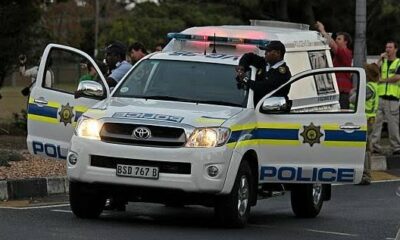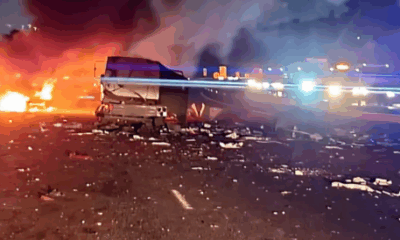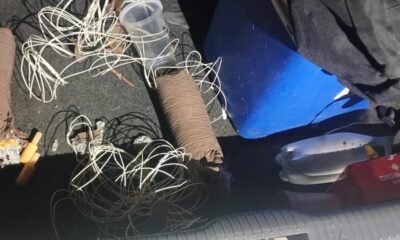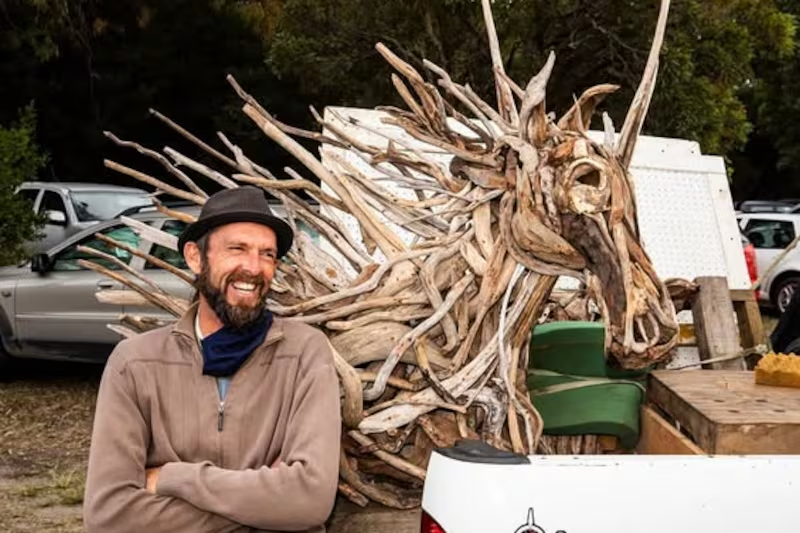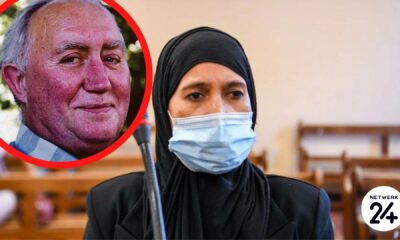News
“Monsters Among Us”: South Africans React to 222-Year Sentence and Child Abuse Arrests

Justice served in Sekhukhune, horror unearthed in Bloubergstrand
In a week where justice showed both its strength and its limitations, South Africans were left stunned by two disturbing criminal cases each highlighting the terrifying reality of sexual violence and the ongoing struggle to protect the vulnerable.
In Sekhukhune, Limpopo, communities are breathing a sigh of relief after a man who terrorised them for years was finally brought to justice. Meanwhile, over 1,600km away in Bloubergstrand, Western Cape, a case of alleged sexual abuse by parents against their own daughters has reignited national outrage over child protection failures.
A reign of terror ends with a historic sentence
Lesley Morwamashobe Mohlala, once a name whispered with fear across Nebo and Hlogotlou, now sits behind bars facing a staggering 222 years in prison. Known for targeting government buildings and public facilities, Mohlala committed a string of crimes ranging from rape to armed robbery.
His capture in 2018 should have ended the nightmare. But months later, he escaped from police custody while being transported to Witbank Prison. What followed was a terrifying crime spree that included robbing security officers and committing further sexual violence.
It wasn’t until April 2023 that the Nebo Jane Furse tracking team caught up with him. DNA evidence connected him to even more victims. By the time he stood before the Polokwane High Court, he faced 23 charges. The court made sure the sentence reflected the damage he caused—ensuring parts of it would not run concurrently, stacking up to a cumulative 222 years.
On social media, Limpopo residents hailed the verdict as a “win for justice,” with one user posting, “At last, the women in our villages can sleep a little easier.”
Outrage in the Western Cape: Parents accused of unthinkable abuse
While Sekhukhune rejoiced at a predator’s downfall, the coastal suburb of Bloubergstrand was rocked by a case that many called “unforgivable.” A 47-year-old woman and a 48-year-old man were arrested on 10 June for allegedly sexually abusing their two young daughters—aged just two and eight.
The charges include rape, child pornography, sexual grooming, and assault. Investigations by the South African Serial and Electronic Crime Investigations (SECI) Units, aided by US Homeland Security and the FBI, helped track the suspects to their home.
The two victims have been rescued and placed in a place of safety, according to authorities.
The news has triggered waves of anger and heartbreak online. “Where were the warning signs?” asked a Cape Town resident on X (formerly Twitter). “It’s terrifying to think this was happening under our noses.”
Systemic gaps in protection
While the swift action by the multidisciplinary team in the Bloubergstrand case is commendable, many are asking how such a situation could go unnoticed for so long. South Africa’s child protection services are often stretched thin, with reports of abuse sometimes falling through the cracks due to a lack of capacity or oversight.
Cases like these are sadly not isolated. According to Statistics South Africa, incidents of sexual violence against children remain alarmingly high. In some communities, fear of retribution or societal stigma keeps many cases unreported.
What next? A call for urgent action
The national conversation has now shifted toward prevention. Civil society groups are calling for more robust vetting processes for parents and guardians, improved psychological support in schools, and mandatory reporting laws for teachers and healthcare workers.
There is also renewed debate around bail and sentencing reforms, especially for those accused of sexual violence. “Too many predators walk free while survivors are left to pick up the pieces,” says activist and lawyer Nthabiseng Maake.
As South Africans come to terms with these deeply unsettling cases, one thing is clear: justice, while sometimes delayed, is possible, but prevention must be the priority.
Have your say: What should the government do to strengthen child protection laws and hold abusers accountable? Let us know in the comments or share your thoughts on social media using #ProtectOurChildren.
{Source: The South African}
Follow Joburg ETC on Facebook, Twitter , TikTok and Instagram
For more News in Johannesburg, visit joburgetc.com

